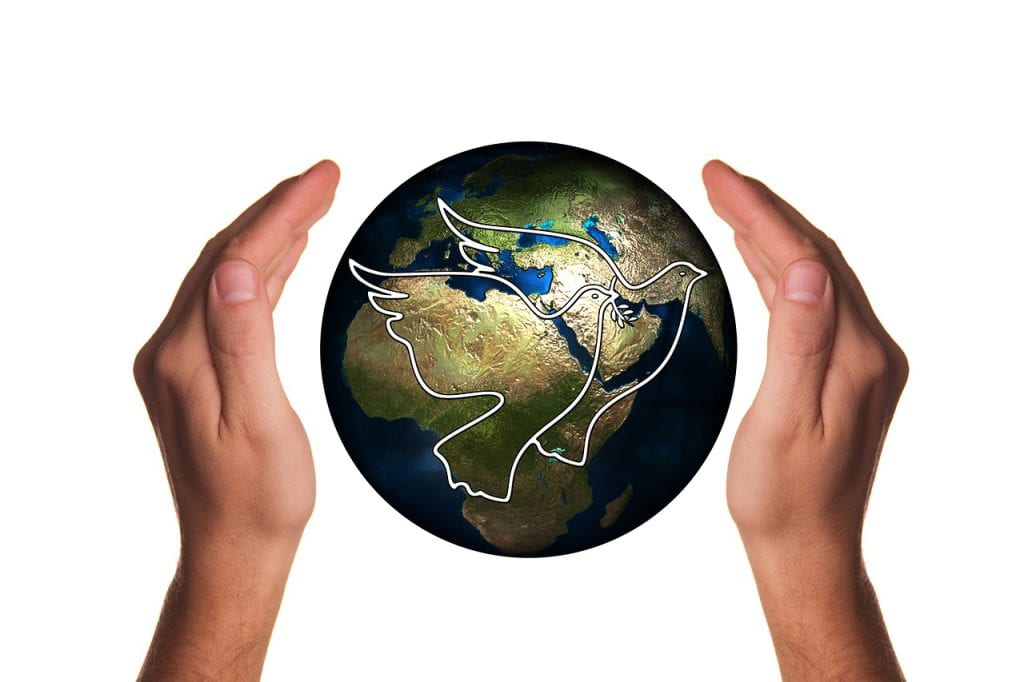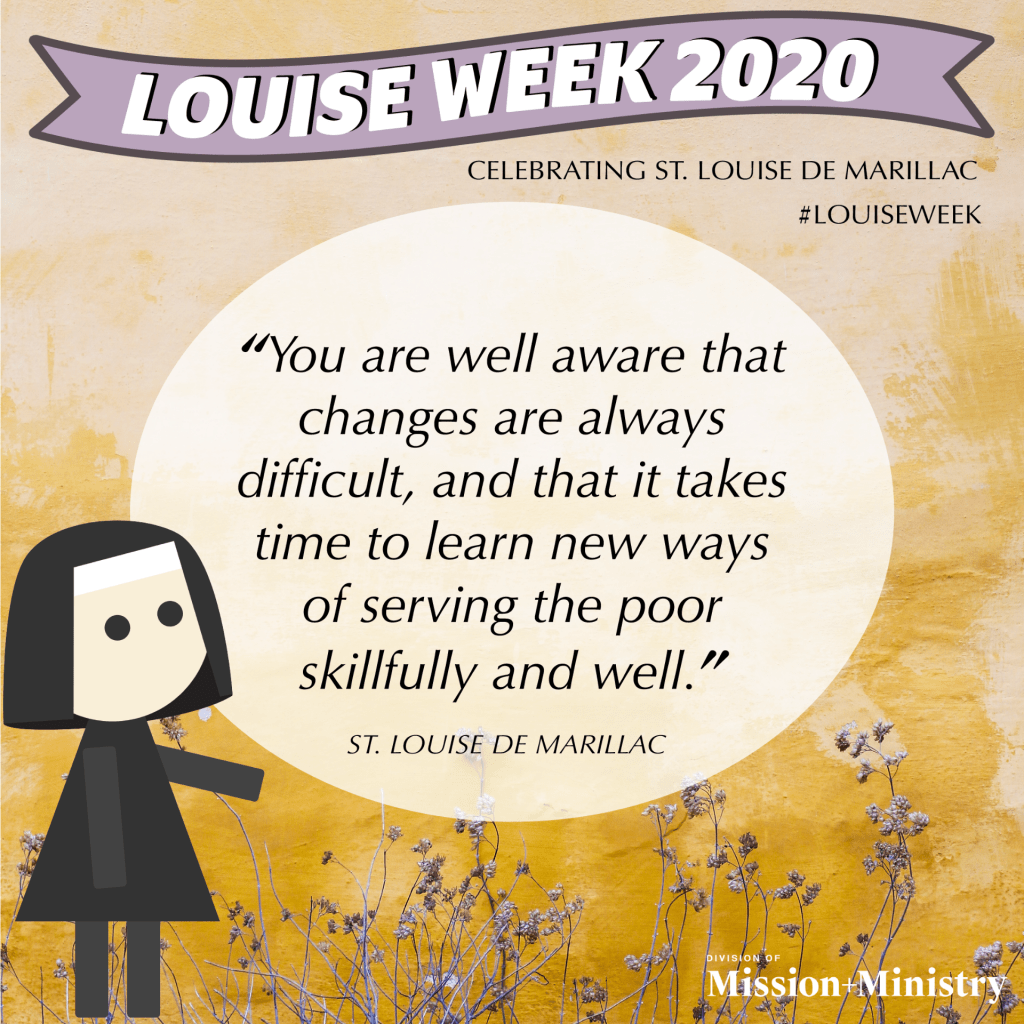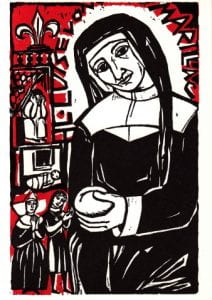With this reflection, we send Easter greetings to all the people connected to DePaul University, people of all religious traditions and none. We come together out of our shared need for meaning, peace, healing, and a space and time of rest for our restless hearts. I invite all of you to enter that place with us.
In the Christian world, Good Friday is full of a cry of suffering, pain, and abandonment: “My God, my God, why have you forsaken me?” (Matthew 27:46). This is the cry of the anguish and desperation of the Christ on the cross.
“My God, my God, why have you forsaken me?” is the painful cry of too many today. When working at the United Nations, I became aware that this cry of anguish and pain of life in all its forms is caused by many different environmental and social realities: missing species, shrinking habitats, collapsed fisheries, bitter seas, soil erosion, plastic apocalypse, the mass-spreading of diseases, rising sea levels, environmental refugees, receding forests, melting glaciers, rising greenhouse gases, massive migrations of species trying to survive, more intense storms, endless winters, growing deserts, arctic meltdown, climate volatility, economic chaos, scandalous inequality, the spread of mental illnesses, inability or lack of interest in outlining an ethic for human-technological interaction, the festering wounds of racism and classism, misogyny and racial, gender, religious, economic hegemony, human trafficking and slavery, economic injustice, inequality and discrimination against minorities of various identities, violence, war, and toxic polarizing politics… and the list goes on.[1]
In this context, it seems appropriate to ask, Where is God? The feelings of abandonment and despair are not far from many of our minds and hearts, even if some may feel uncomfortable thinking this way. When Vincent heard this cry of the most abandoned, he dared to listen. He began a movement of resilient hope, nonviolence, and peace, transforming solidarity. He decided to follow the wisdom and direction of life, not death.
In the Vincentian movement, we are committed to telling people living in suffering and desperation that they are not alone and have not been abandoned and that God is with them. Often the only sign of God that feeds their hope is in the hands, the solidarity, and the compassion of a growing number of people of goodwill who continue to join the human march toward life, hope, reliance, justice, and peace.
We are not exempt from the consequences of the chaos of our interconnected, globalized world. Among us in our neighborhoods and our many communities of belonging here at DePaul University, if we are attentive, we can hear in the cry of vulnerable life a call for help too.
Concretely, during these challenging days, when in conversations and decision-making processes related to Designing DePaul and our projected budget gap, we must always be attentive to hear the cries for help of the most vulnerable members of our community. In this way, meaning, equity, and the sense of belonging will prevail, and we will continue to be rooted in the Vincentian spirit.
The Easter season is full again with good news: The Lord is risen, Alleluia! (Matthew 28:5–7).
According to the Christian scriptures, “very early in the morning, on the first day of the week, [women] went to the tomb when the sun had risen” (Mark 16:2). Amid the darkness, they set out on the road giving company to each other.
Because it is not yet dawn for so many peoples, these women of the morning are calling us to overcome all fear and to set our feet on the road together to witness and actively be part of the triumph of life over death. At every dawn in each corner of the world, millions of humans set out on the road and are the door to each grave; they are witnesses of life, light, and hope.
In the Christian tradition, when we are amid our pain, trials, and anguish, asking why God has forsaken us, God surprises us with a new presence, many times in little signs that we need to identify and translate. The resurrection of the Lord is not a magical experience but a lived reality in the communities that dare to make the call for mutual help and care central to their common survival.
In the Christian paschal mystery, the darkest part of the night is often shortly before the dawn. “The joy comes in the morning” (Ps. 30:5). The joyful proclamation of the Resurrection on Easter Sunday assures us that the last word lies not with violence, injustice, and inhumanity but with God’s purpose of love, justice, and hope. This purpose runs like a thread throughout history and will find its ultimate fulfillment in the coming fullness of the Kin-dom, the common eschatological place where all cultures and religions and all species in our common home are going.
As a Vincentian, I am excited to be alive this Easter. I see a movement in the Catholic Church that is once again looking for a profound transformation. This Easter season invites us to live and generate a culture of renewal in the heart of the Church as we follow Jesus in our total commitment to the protection, care, and survival of life.
Pope Francis is inviting the Church to embrace the gospel of nonviolence as a concrete expression of our commitment to life in the context of the Easter celebrations of this year: “Living, speaking, and acting without violence is not giving up, it is not losing or giving up anything, but aspiring to everything.” May we spread this culture of nonviolence far and wide. May we all join the world in praying for such a nonviolent culture. May we move forward with great gratitude for this word calling us to the fullness of the nonviolent life “aspiring to everything.” (You can see the original press release here.)
Pope Francis knows that the gospel of nonviolence has not always characterized Christianity. Christians have often been a significant obstacle to God. As a part of our commitment to live as resurrected people, we need to ask for forgiveness for the “holy wars,” the inquisition, for blessing guns and bombs, for attempting to justify and participating in the torture and enslavement of human beings, for holding signs that say that God hates people of various minorities, for starting violent apocalyptic militias, for blowing up abortion clinics, for turning a blind eye to poverty and exclusion, and for the sexual abuse of children by priests and religious. These things, and many others, are not the Christianity of Jesus Christ who publicly forgave his killers. They are a Christianity that has become unrecognizably ill and that does not reflect the paschal mystery in which violence, abuse, exclusion, injustice, and death are defeated.
Reflection by: Fr. Memo Campuzano, C.M., Vice President of Mission and Ministry
[1] In this list I am using the language I read and heard in United Nations documents, meetings, and conferences.



